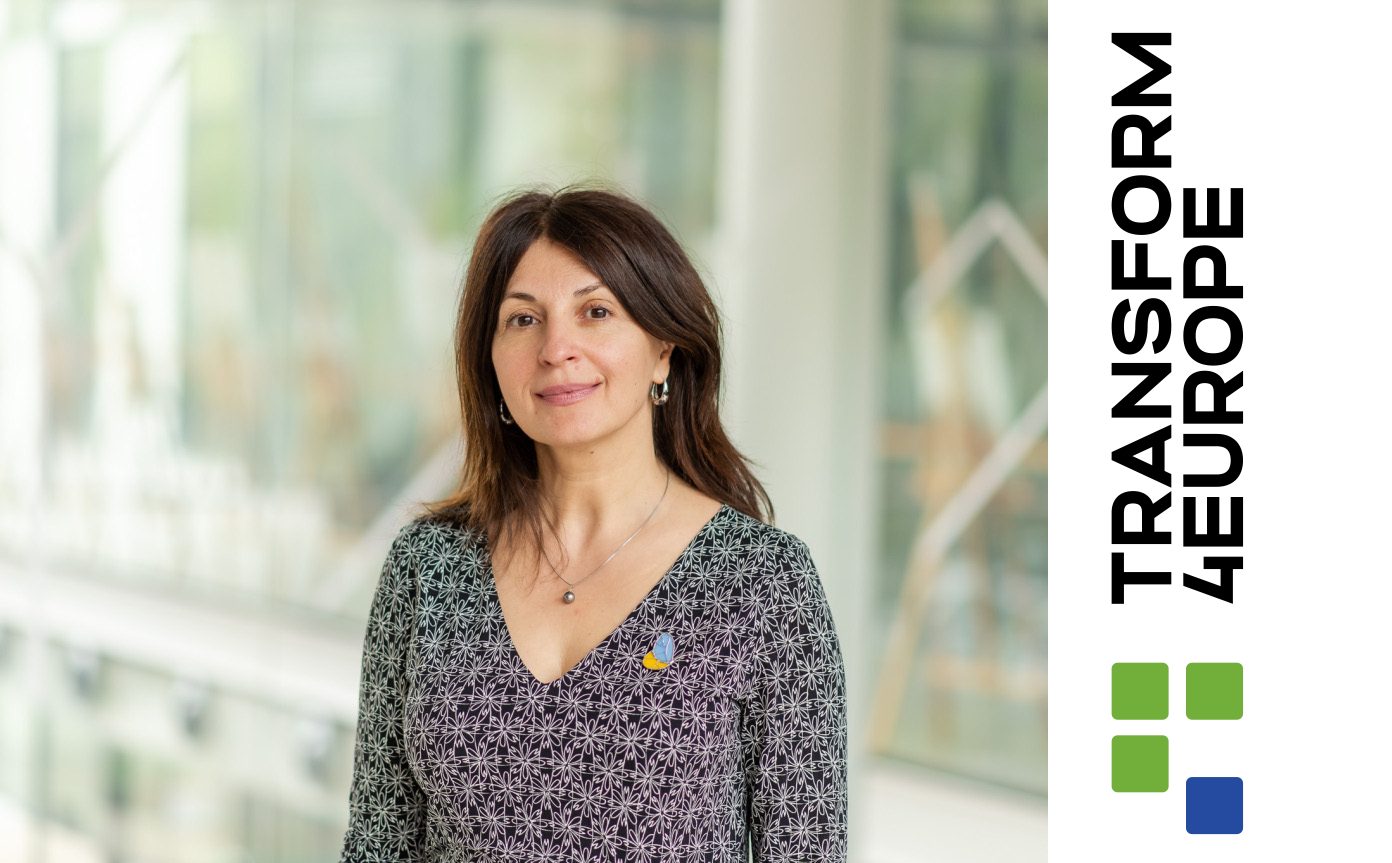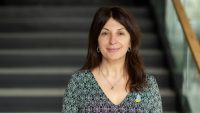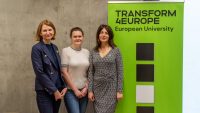MSU Assoc. Prof. Sikorska: We Need to Think About Ukraine’s Future

“We still have an ongoing war, and there are days when we are very pessimistic, [it seems like] this horror will never end. On the other hand, we understand that someday any war can finish and we need to think about rebuilding and restoration, and higher education sector and our country”, says Assoc. Prof. Iryna Sikorska, Head of the Center for International Education at Mariupol State University (MSU), who recently visited Vytautas Magnus University (VMU) and discussed cooperation opportunities. Both universities are members of the European university alliance Transform4Europe.
Mariupol State University (MSU) resumed its activities impressively quickly: after the Russians destroyed the city, the university promptly moved to Kyiv and started organising online studies. It is hoped that in September students will be able to attend lectures in person, at the university’s spaces in Ukraine’s capital. According to Assoc. Prof. Sikorska, by resuming its activities MSU seeks to retain its identity.
“We started to contact everybody, students and teachers, [to determine] who managed to escape and survive. That was a very dramatic process. It’s difficult when you find out that your colleague was killed. At first, we occupied just several rooms in Kyiv for Rector and other leadership, while the education process was online only. On the other hand, during Covid, we all had to start distance learning. In this case, we can thank this period. However, we also needed to know where students are, [if they] moved and had no access to internet or a computer. Little by little, we started to continue our education process”, MSU Head of the Center for International Education explains, talking about the challenges of moving to the capital.
Starting from September 2022, Mariupol State University successfully admitted new students, including those from Kyiv, because it offers unique study programs that have not been offered in this city before: studies of mediation, conflict management and other areas. In total, the university currently has 3,275 students and more than 200 faculty members and administrative staff. 28 study programs are conducted.
Sikorska notes that it would have been much harder for the university to restore its activities if it didn’t receive a lot of support. “We need to thank national supporters and, especially, international. The story of the tragedy of Mariupol and MSU was heard not only in Ukraine but beyond. People [donated] private funds, EU programs assisted us, we also received funds from the Ministry of Education”, MSU’s representative said, adding that currently a very small portion of students attend lectures in person, because many of them moved to Ukraine’s areas that have been less affected by war, such as Lviv Oblast.
“Our rector stayed in Mariupol till the very end of the siege, when he knew that [there we no more] possibilities, that he did all he could. He is a true leader who keeps our spirits up and has a strategic vision of not only restoration but even renovation of the university: providing new education programs, e.g. on cybersecurity, how to deal with propaganda etc.”, Sikorska says, briefly describing the plans of the MSU Rector Mykola Trofymenko and his team.
More than a university
According to MSU Head of the Center for International Education, when the university started receiving various humanitarian aid, such as clothing and medicine, it was decided to establish a humanitarian centre which would provide support to all Ukrainians who have been internally displaced by war.
“Psychological assistance [is also provided] to everybody, even to students and faculty members. We need this help, because many people are severely traumatised by these dramatic events. This also opens new horizons for a new education program that could aid those who need help to [adapt], survive in society, to [return to] normal life after military activities”, Assoc. Prof. Iryna Sikorska points out.
While discussing the university’s international relations with other institutions, she first singled out the cooperation with Vytautas Magnus University. “This is actually our dear and near partner, we appreciate a lot the international cooperation, assistance and humanitarian help from your side, your leadership and from individuals to support us and our students. And thanks again to the university, we are now an associated member of the Transform4Europe Alliance: thanks to that partnership, we have an alliance of friends who also provide us with assistance, cooperation and exchange programs. That partnership is very important for us”, emphasised the MSU representative, explaining that the university has received support from all of its international partners.
In terms of the future of higher education in Ukraine, Sikorska argues that the fate of universities in her country must be taken care of. Even though universities in the western part of Ukraine were not damaged, they still are experiencing the shortage of students: many students moved out of the country together with their families. War has affected the entire higher education sector in Ukraine, therefore now it is necessary to consider how to restore it and make studies attractive to students so that they would come back to their homeland.
“We see good, optimistic signs on social networks: many refugees, people who have left Ukraine, say that they plan to return whenever there is a possibility and they know that it’s safe. We need to think about the economy, agriculture, social, civil society etc., and definitely rebuild the country”, Head of the Center for International Education at Mariupol State University says.















